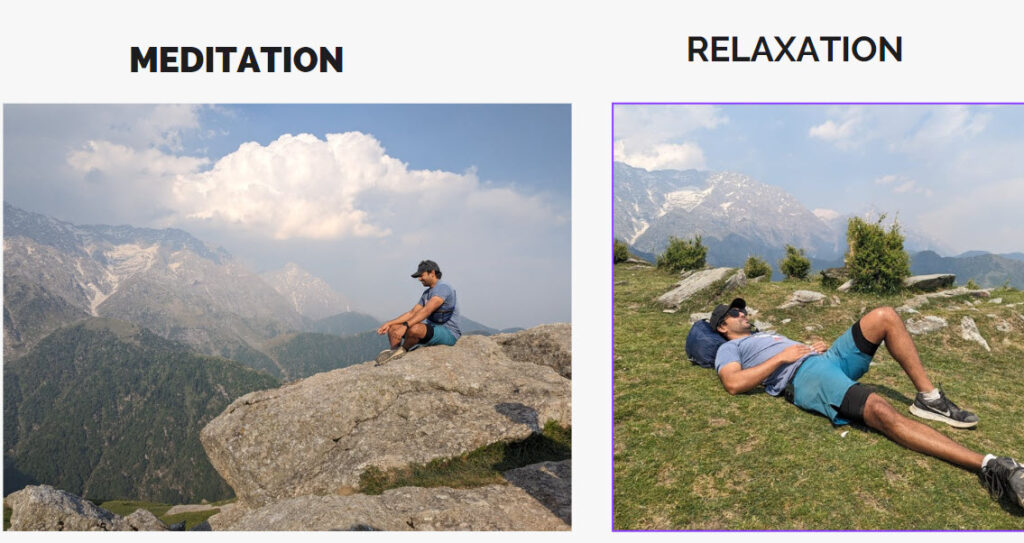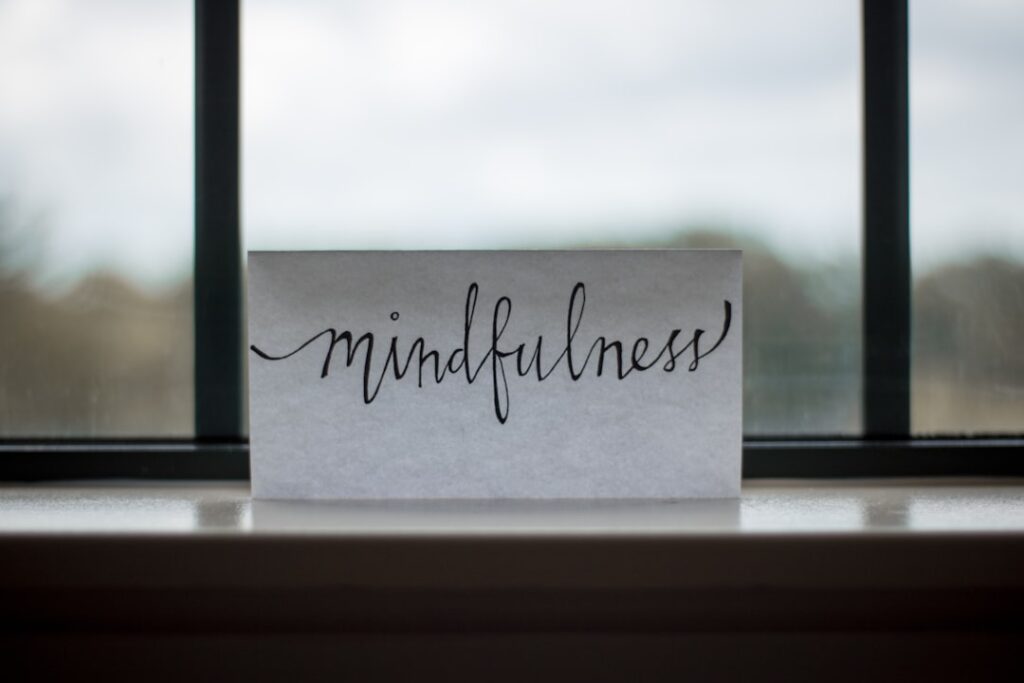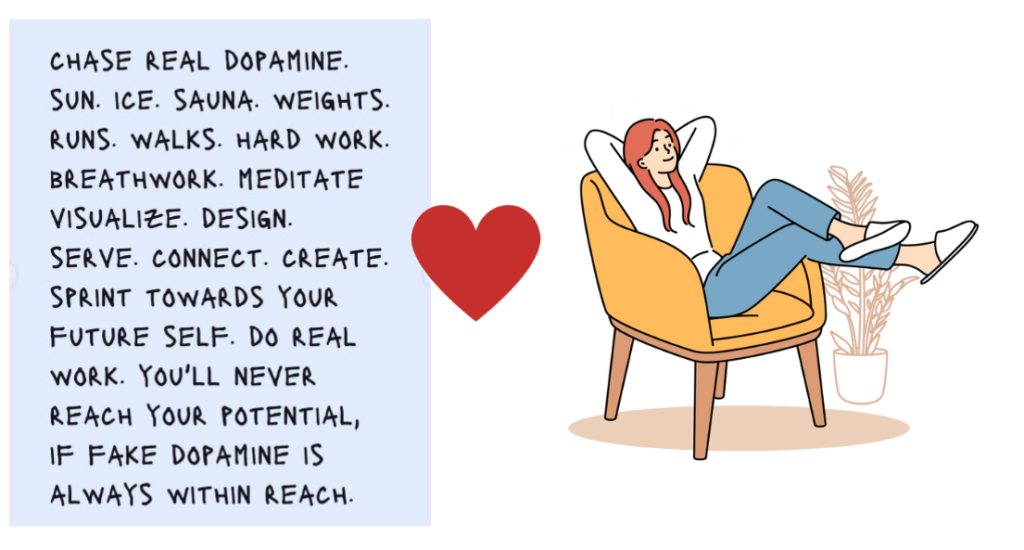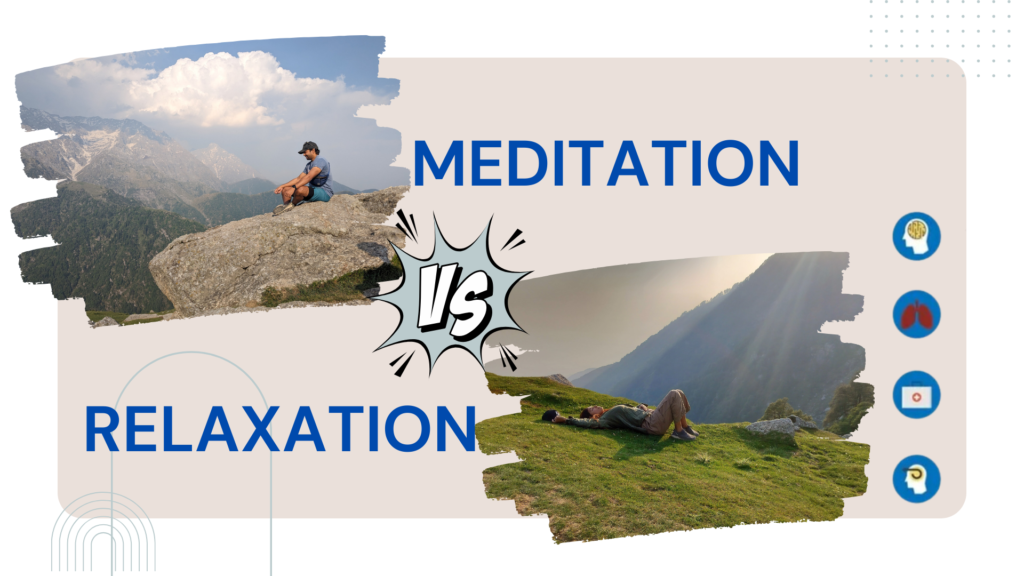Relaxation vs. Meditation: Understand the differences
Lets understand relaxation and meditation with an example. Its a hot day in LA and Brad Pitt has been shooting for 3 hours. He decides to rest and take a break between scenes. He lounges in his trailer, sipping on a cool drink, and letting his muscles unwind. He isn’t thinking about his lines or his next scene; he’s simply letting go and enjoying the moment. This is Relaxation. What we should all take time to do after a busy day.
On the other hand, meditation is like Rafael Nadal in the zone during the French Open finals. Picture Nadal focusing intensely on his breathing, his movements, and the ball. He’s aware of his body, his opponent, and his surroundings, all while maintaining a state of calm alertness. He’s fully present, observing every detail without getting lost in it. So, while Brad Pitt is simply relaxing, Rafael Nadal is engaging in a form of active awareness, embodying the essence of mindfulness.

Difference is in the technique and methods
Relaxation involves reducing tension and calming the mind, often achieved through techniques that ease the autonomic nervous system. In contrast, meditation focuses on cultivating mindfulness and awareness, allowing us to observe our thoughts without judgment.

Urge you read this but if you cannot here are the key findings
- Relaxation is a positive practice, often a side effect of other activities, focusing on reducing tension and calming the autonomic nervous system.
- Mindfulness is about awareness, not necessarily relaxation; you can be mindful of various states like relaxation, tension, pain, or anger.
- Relaxation techniques often induce “restful alertness,” keeping the mind clear and sharp while the body is at ease.
- Early relaxation practices and what we do at nsdr-yoganidra and Sleep Dragon are like body scans, can lead to people falling asleep, but with practice, they stay alert and aware.
- Relaxation impacts the autonomic nervous system, lowering sympathetic activity and increasing parasympathetic activity, resulting in physiological effects like muscle relaxation and improved blood flow.
- Mindfulness involves an attentional state focused on observing oneself, which may or may not coincide with physical relaxation.
Why its important to understand the difference between mediataion and relaxation?
I have the role of a wife, a daughter, a friend, and a teacher. As I juggle responsibilities, the line between relaxation and meditation often blurs.

What exactly is 15 minutes of alone time doing for me. Meditation can lead to relaxation, but not necessarily the same. Behavior follows action. This a different tangent. But the act of sitting down focusing on breath, can lead to relaxation.

Relaxation and meditation are your modern day tools to help you with emotional well-being and stress reduction, yet they cater to our needs in distinct ways. In my opinion both are important. Self care or Spa Days can be a relaxing way to spend a weekend. Exploring the nuances of relaxation techniques, such as body scans and mindful breathing, compared to meditation techniques that encompass mindfulness meditation, mantra, and contemplation, can unlock new levels of bodily awareness, self-acceptance, and focus and concentration.
I have tried to dive in to the scientific differences that distinguish relaxation from meditation, highlighting how each impacts the autonomic nervous system, alertness, and self-awareness.
I have shared psychological and emotional impacts of integrating meditation and yoga nidra practices into daily life, offering insight into how they can enhance emotional well-being and reduce stress. We also provide a roadmap for identifying which practice, be it relaxation or meditation, resonates more with your current state and goals.
Whether you’re drawn to relaxation for its immediate stress-reducing benefits or meditation for cultivating a deeper sense of mindfulness and self-awareness, our journey will illuminate the path towards enhanced well-being.
Scientific Differences
Neurological Effects of Relaxation
Research highlights that muscle relaxation involves significant cortical activation, potentially more extensive than that required for muscle contraction [10] Relaxation not only impacts the physical state but also induces significant neurological changes, enhancing our understanding of its deep physiological impacts.
Neurological Effects of Meditation
Meditation, on the other hand, is associated with neuroplasticity, which contributes to reduced age-related brain degeneration and improved cognitive functions [13].
Neuroimaging studies have demonstrated that meditation leads to changes in brain connectivity, particularly in the theta band, showing increased connectivity in the right hippocampus among meditators [13]. These alterations suggest that meditation might play (In my case definitely plays) a role in preventive strategies for cognitive decline and stress management, highlighting its profound neurological benefits.

Psychological and Emotional Impact
Impact on Stress and Anxiety
Relaxation techniques have been shown to effectively reduce symptoms of stress and anxiety. Through practices like progressive muscle relaxation and relaxation imagery, individuals experience a decrease in heart rate, blood pressure, and stress hormone levels, which contributes to overall stress reduction [12][18]. Think your last spa day or sitting at home and just listening to music- You always feel lighter and happier.
Impact on Self-Awareness and Mindfulness
Meditation, particularly mindfulness meditation, enhances self-awareness and fosters a deeper understanding of one’s thoughts and emotions. It encourages a non-judgmental awareness and acceptance of present moment experiences, which can significantly diminish psychological defense mechanisms and promote mental well-being [16][22]. This practice not only aids in managing stress but also contributes to greater emotional resilience and an enhanced ability to navigate daily challenges [17][24].
Practical Applications and Studies
Clinical Studies on Relaxation
We’ve observed that relaxation techniques, such as Progressive Muscle Relaxation (PMR), significantly reduce stress and anxiety. For instance, a study involving first-year nursing students demonstrated a notable decrease in stress levels after PMR sessions [8].
Clinical Studies on Meditation
Meditation, particularly Mindfulness-Based Stress Reduction (MBSR), has been extensively studied for its health benefits. Clinical trials have shown that Meditation/mindfulness effectively reduces symptoms of psychological distress, anxiety, and increases mindfulness and well-being in various occupational contexts [33].
Meditation, offers two main benefits according to Sam Harris ( see YouTube below) is a practical improvements like reduced stress and increased focus, and a deeper, more profound understanding that the self is an illusion. This realization, he argues, leads to significant and transformative benefits beyond the conventional claims of meditation.
Mindfulness interventions have proved beneficial across diverse patient populations, including those with chronic pain, where meditation significantly reduced pain and improved quality of life [30]. As I say meditate 10 minutes everyday and change your life.
My closing thoughts: How to use Meditation and relaxation to improve life experiences
Through my 17 years experience and my research, I have come to understand both are important. Treating yourself after a full days work or getting a massage is absolutely fine. You need to take care of yourself. Relaxtion is important.
It is also important to take note of your feeling. Mindfulness practices help you observe your feeling and help you take measures on a stressful or a “Character building day”. Relaxation and meditation, have distinctive impact on the mind and body.
Relaxation practices, have immediate stress-reducing benefits, offer a practical approach to helping you on a day to day basis.
Meditation, with its roots in enhancing mindfulness and self-awareness, presents a deeper psychological transformation, contributing to long-term emotional resilience and cognitive benefits
Recognizing the transformative potential of integrating relaxation and meditation into our daily routines can propel us toward a more balanced and reflective life.
We invite you to further this conversation and deepen your understanding by joining our FREE WhatsApp community, a space devoted to enhancing our lives through shared knowledge and experiences.
Explore this opportunity here, and embark on a journey toward enhanced well-being with a like-minded community.

FAQs
1. What distinguishes relaxation from meditation?
Relaxation can be achieved through simple pleasures like sitting at the beach or enjoying a book with a warm cup of tea, where the main goal is to unwind and feel at ease. Meditation, however, involves specific techniques aimed at training the mind. Although meditation can lead to relaxation, its primary purpose is to foster a deeper state of awareness and control over one’s mental processes.
2. Should you consider meditation as a practice for yourself?
Meditation offers numerous benefits, including a heightened sense of calm, peace, and balance that positively impacts both emotional well-being and overall health. It is particularly useful for managing stress and maintaining focus on calming thoughts and activities. Through meditation, you can learn to remain centered and maintain inner peace, making it a worthwhile practice for many.
3. How do brain waves differ between relaxation and meditation?
During meditation, alpha waves tend to be more prevalent in the posterior parts of the brain compared to during periods of simple relaxation. Alpha waves are associated with wakeful rest and are considered a universal indicator of relaxation in both meditation and other restful states, according to Professor Øyvind Ellingsen from NTNU.
4. What is the main difference between resting and meditating?
The key difference between resting (such as sleep) and meditating is the level of awareness. Meditation involves a heightened awareness where both the conscious and subconscious minds are active and engaged. In contrast, during sleep, the unconscious and subconscious minds dominate, leading to a lack of active thinking and awareness.
References
[1] – https://www.ncbi.nlm.nih.gov/pmc/articles/PMC7003166/
[2] – https://www.mayoclinic.org/tests-procedures/meditation/in-depth/meditation/art-20045858
[3] – https://www.ncbi.nlm.nih.gov/pmc/articles/PMC7287297/
[4] – https://positivepsychology.com/history-of-meditation/
[5] – https://time.com/4246928/meditation-history-buddhism/
[6] – https://www.ncbi.nlm.nih.gov/pmc/articles/PMC4895748/
[7] – https://www.ncbi.nlm.nih.gov/pmc/articles/PMC7003166/
[8] – https://news.harvard.edu/gazette/story/2018/06/mindfulness-meditation-and-relaxation-response-affect-brain-differently/
[9] – https://www.quora.com/What-are-the-differences-between-relaxation-and-meditation
[10] – https://www.ncbi.nlm.nih.gov/pmc/articles/PMC6901433/
[11] – https://www.webmd.com/balance/ss/slideshow-what-happens-when-relax
[12] – https://en.wikipedia.org/wiki/Relaxation_(psychology)
[13] – https://www.ncbi.nlm.nih.gov/pmc/articles/PMC6312586/
[14] – https://www.nature.com/articles/s41598-019-47470-4
[15] – https://www.ncbi.nlm.nih.gov/pmc/articles/PMC4684838/
[16] – https://www.ncbi.nlm.nih.gov/pmc/articles/PMC7003166/
[17] – https://www.mayoclinic.org/tests-procedures/meditation/in-depth/meditation/art-20045858
[18] – https://thewellbeingcollective.com/blog/the-difference-between-mindfulness-and-relaxation
[19] – https://www.mayoclinic.org/healthy-lifestyle/stress-management/in-depth/relaxation-technique/art-20045368
[20] – https://www.ncbi.nlm.nih.gov/pmc/articles/PMC9238062/
[21] – https://www.ncbi.nlm.nih.gov/books/NBK513238/
[22] – https://www.ncbi.nlm.nih.gov/pmc/articles/PMC5645519/
[23] – https://www.linkedin.com/pulse/meditation-path-self-awareness-personal-growth-better-mike
[24] – https://www.headspace.com/meditation/awareness
[25] – https://www.ncbi.nlm.nih.gov/pmc/articles/PMC8931770/
[26] – https://www.ncbi.nlm.nih.gov/pmc/articles/PMC8272667/
[27] – https://www.healthline.com/nutrition/12-benefits-of-meditation
[28] – https://www.ncbi.nlm.nih.gov/pmc/articles/PMC10355843/
[29] – https://news.harvard.edu/gazette/story/2018/04/harvard-researchers-study-how-mindfulness-may-change-the-brain-in-depressed-patients/
[30] – https://www.nccih.nih.gov/health/meditation-and-mindfulness-what-you-need-to-know
[31] – https://www.ncbi.nlm.nih.gov/pmc/articles/PMC7003166/
[32] – https://www.ncbi.nlm.nih.gov/pmc/articles/PMC8272667/
[33] – https://link.springer.com/article/10.1007/s12671-023-02281-7
[34] – https://www.ncbi.nlm.nih.gov/pmc/articles/PMC7003166/
[35] – https://www.mayoclinic.org/tests-procedures/meditation/in-depth/meditation/art-20045858
[36] – https://www.mindful.org/how-to-meditate/
[37] – https://www.ncbi.nlm.nih.gov/pmc/articles/PMC7003166/
[38] – https://www.quora.com/What-is-the-relationship-between-relaxation-and-meditation
[39] – https://lynnrossy.com/meditation-is-different-and-healthier-than-relaxation/



